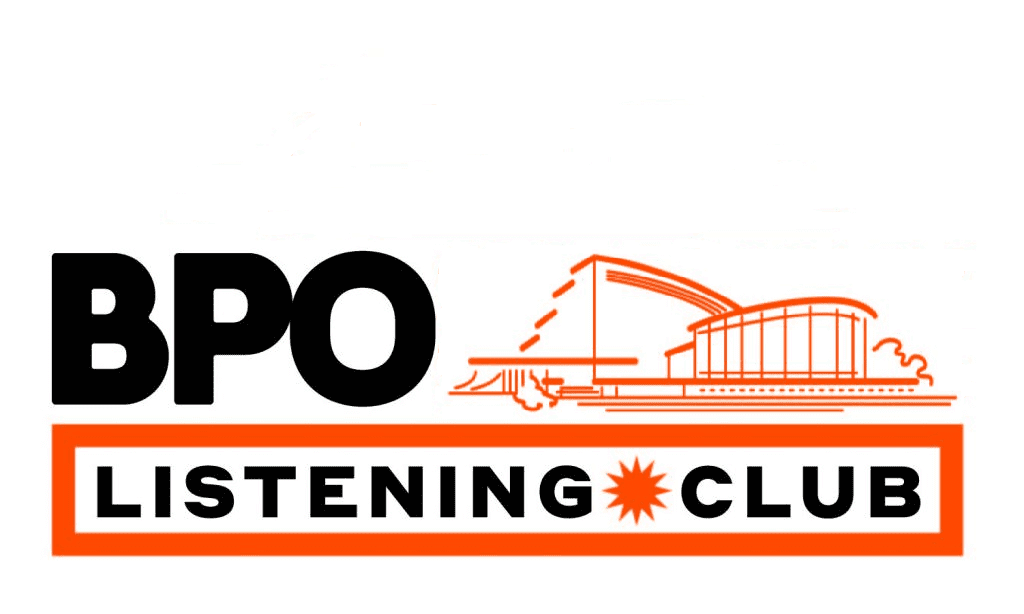
ERNESTO CORDERO Ínsula Tropical for violin and string orchestra
performed by the Zagreb (Croatia) Soloists & Guillermo Figueroa, violin
SHOSTAKOVICH Concerto No. 1 in C minor for Piano, Trumpet & Strings, Op. 35
performed by the Mariinsky Orchestra
SUK Serenade in E-flat major
performed by New York Classical Players
If you think about it, laughing is a pretty… weird behavior, isn’t it? It’s strange that certain circumstances entice me to open my mouth wide and loudly vocalize a rhythmic pattern of high pitched (for me, at least) noises. Stranger yet is that I do that in response to something like a TikTok of a dog being confused by a mirror. We human beings are fascinating creatures, alright.
I heard a fascinating, evolutionary explanation for laughter. Apparently, one theory is that it developed as a way for us to communicate to each other that a perceived threat is in fact harmless. Like, oh, haha, that tiger over there is not actually a tiger, it’s just Bob dressed up as a tiger. Guess we’re not going to be eaten alive, ha ha ha. Nice one, Bob.
I’m no comic, but what that theory tells me is that the root of humor is having your expectations be met with something unexpected, especially when your expectations are of the uncomfortable or negative variety. It’s the setup and the punchline: you set expectations, and then land the joke with the punchline that doesn’t meet the expectations you set.
There are lots of environments suitable for humor. It’s not just a stand-up comic on a stage using spoken language – that’s just one method. The tiktok example I mentioned earlier is another: no spoken language, but expectations are set and then met with something unexpected.
So music, too, is suitable for humor. I’m not talking about funny songs though, like you might hear from one of my favorite groups, Flight of the Conchords. Those songs are funny because of the lyrics, along with some accompanying musical elements that heighten the humor of those lyrics. I’m talking about purely musical humor. Having certain musical expectations be met with something out of the blue.
I have a perfect, non-classical example of this. Spotify decided to put this song on my Discover Weekly playlist, which… I guess you’ll learn something about my listening habits from this. Spotify shows me a lot of different stuff cause I’m weird. I digress. This is a pretty hardcore metal track that does something that made me crack up in the middle of it – skip to around 1:15 to get the idea if you’d rather not listen to lots of metal:
Maybe you didn’t find that funny, it completely killed me. I said I was weird earlier, right? Anyway, explaining a joke never makes it funny, but for science, I need to detail out what is happening musically that created the humor. First, we’re listening to metal, and we all have generally similar expectations of what that genre is, right? So our expectations are being met: lots of distorted guitar, aggressive drumming, and repetitive rhythms. Nothing weird about that, until a musical event happens: banjo is introduced, first in the background, and then completely in the foreground. In fact, the music changes entirely: for a brief moment, we’re on the farm, listening to banjo, bass, and a cute little flute melody. The icing on the cake, though, is what happens after. We’re already in weird territory and it takes it a step further: that cute little flute melody is now transformed to a glockenspiel, but altered into a different key, and is being mashed with the most aggressive of guitar power chords.
If you’re like me and found that metal track funny, then you didn’t really need me to explain it, but it’s important to note that the humor was created through purely musical means. No words or visuals. It’s a really simple example of how, while you listen to music, you’re constantly setting expectations for what comes next, and evaluating the expectations you’ve already set.
Which takes me to the concert I’m writing this guide for. On it we have a piano concerto by Shostakovich that features a solo trumpet part, so it’s kind of like a concerto for both instruments? It’s interesting instrumentation, to say the least.
In it, you won’t find the same kind of overt humor that I talked about earlier. The point I was making earlier wasn’t that you should be laughing at this music, but rather that if you pay attention, you start to notice strange things in the music that can only be interpreted as a subtle humor. To help you acclimate to this music, ask yourself: what’s the role of the trumpet in this piece? Does it match what the piano plays, or the orchestra?
Happy listening!
Discussion Questions:
- Share a song or other musical creation that either made you laugh or you found amusing because of the unexpected directions it took.
- What’s the importance of humor in the arts? Share a piece of art that you found humorous but also felt a deep connection with.